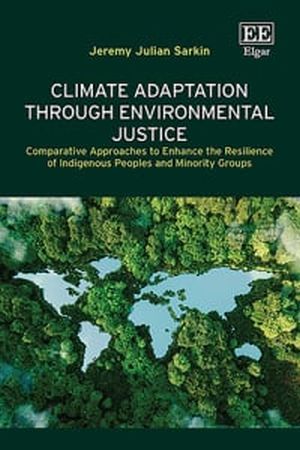
This interdisciplinary socio-legal book explores the effects of climate change on Indigenous People and minority groups. Jeremy Julian Sarkin argues that an integrated approach to deal with climate change, that also incorporates dealing with environmental justice matters, is needed. This is because dealing with environmental injustices must be prioritised in order to achieve the necessary climate change action goals and facilitate climate adaptation for the most vulnerable.
The book investigates the challenges encountered by Indigenous People and minority groups, who face extensive discrimination and often live in deprived areas that are not adequately equipped to deal with the consequences of climate change. By examining the issues concerning climate change and environmental justice in the United States, South Africa and Canada, Sarkin presents various ways to enhance the resilience of those most vulnerable to climate change. By integrating knowledge and methods from a range of disciplines, including the social and natural sciences, Sarkin argues that addressing these issues concurrently and in a unified manner would better aid indigenous people and minority groups facing these effects.
Climate Adaptation Through Environmental Justice is an essential resource for students and scholars in the fields of law, environmental studies, and the social and natural sciences. It also provides helpful materials to assist law and policy makers, judicial officers, private sector actors, and civil society organisations in developing constructive policies regarding environmental justice and climate change issues.